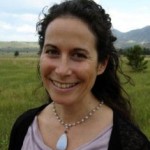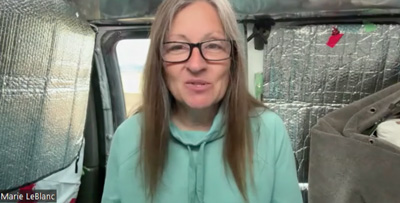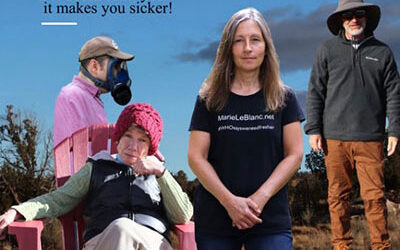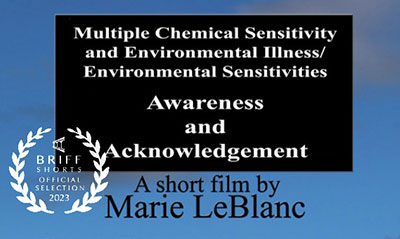by Sweigh Emily Spilkin
1.
Shana Tova. How has it been? he asks,
the beautiful man with the sad eyes who I see each year
on this day, in the same spot, his tallis on his
shoulders, his white kipah covering his head.
Rough, I say. Rough makes for good art, he replies,
smiling, his eyes still sad.
2.
Up on Shanahan Mesa, autumn blazing
full force around me, I feel like a transparent mountain,
solid yet see-through, like the moon, which, this afternoon
is pale and almost full. I am reminded of Reb Tirzah quoting
David Whyte last night, and how I mouthed along,
showing off to my new friend, that I knew the poem,
eager to know something in the middle of this
total and terrifying dissolution.
But the moon. The moon
does rise, night after night, faithful, even in its
fading from fullness.
3.
There are no words here, I reply, naked, but ok
untroubled today, not busy god-wrestling,
or self-wrestling, but stripped to bone.
I have, I realize, if only just now, begun to,
love the light from out of its marrow.
4.
I am sick of revering my wounds more than my glory.
5.
While we are, out loud, confessing our sins,
me and my beautiful, awkward tribe
wearing white, barefoot, worn down together
though fast and prayer, the young girl under the chupa
who I can not see cries out: for the sin of grieving
when it was not my time to grieve.
6.
Julie puts her hand on my arm and whispers
of man I am with: he has so much light,
and I smile. Yes, this. This is healing. It is time to stop grieving,
and to risk loving, wild, free, sick or not sick, instead.
7.
I go back and forth.
To the community when I need to
see, name, and thin my story of isolation,
when I need to be held more than I need to protect,
when nourishment is more powerful than toxicity,
and god light is my food. Then, when I get too strong a hit
of perfume or deodorant or dry cleaning fluids,
I move back to the balcony, alone,
where my voice is louder as I chant the prayers,
not drowned out by the others, but not mixing either,
not touching or bumping up against, just singular.
And fight the loneliness, engaging once again,
in the god-wrestling, attempting to choose
love again instead of fear. And it goes on like this,
for quite some time. But not forever.
8.
How do you write a story you are still in the middle of?
It’s not linear, but overlapping, simultaneous and multiple,
not art, just life. But life lived differently than it was before.
Someday, I will look back on this time and weep with gratitude,
for the way in which I was prepared. For the time I was given.
9.
May this be the year that the oil flows free,
the wine is abundant, and the corn plentiful.
According to my doctor, I’m allergic to corn, wine, and most oils. But I refuse
to be allergic to my light, refuse to deny myself my own harvest.
10.
At the center of this illness is a broken heart, I wrote in last
year’s Yom Kippur poem. But this is only partially true.
Like when Ted asked, how are you? and I replied,
there are multiple levels of reality, my answer depends
upon which one I choose to describe.
11.
At the center of this illness is a beautiful, blinding, light.
I think I’ll choose this one instead.
© Sweigh Emily Spilkin 2006
 Sweigh Emily Spilkin, MFA is a poet, healer, and guide. Sweigh lives in a sleepy corner of Boulder, CO where she wanders through the foothills, teaches poetry, practices chi kung energy healing, and on a good day, writes. Sweigh loves and is terrified of the Mystery. Over the last three years, a journey with chronic illness has taught her lessons she never wanted to learn, and she is grateful. Sweigh received her MFA in poetry from Naropa University in 2000.
Sweigh Emily Spilkin, MFA is a poet, healer, and guide. Sweigh lives in a sleepy corner of Boulder, CO where she wanders through the foothills, teaches poetry, practices chi kung energy healing, and on a good day, writes. Sweigh loves and is terrified of the Mystery. Over the last three years, a journey with chronic illness has taught her lessons she never wanted to learn, and she is grateful. Sweigh received her MFA in poetry from Naropa University in 2000.










0 Comments